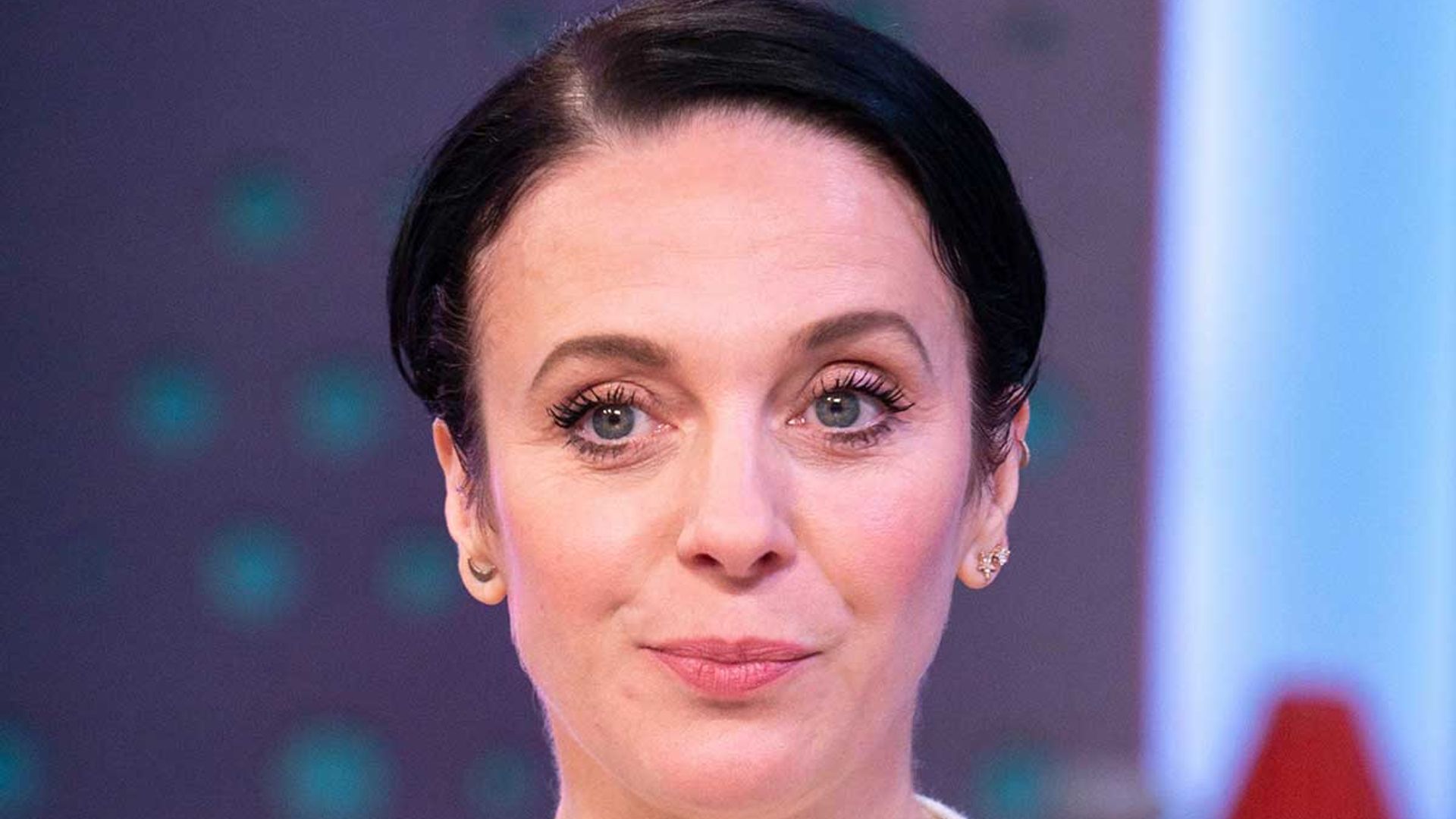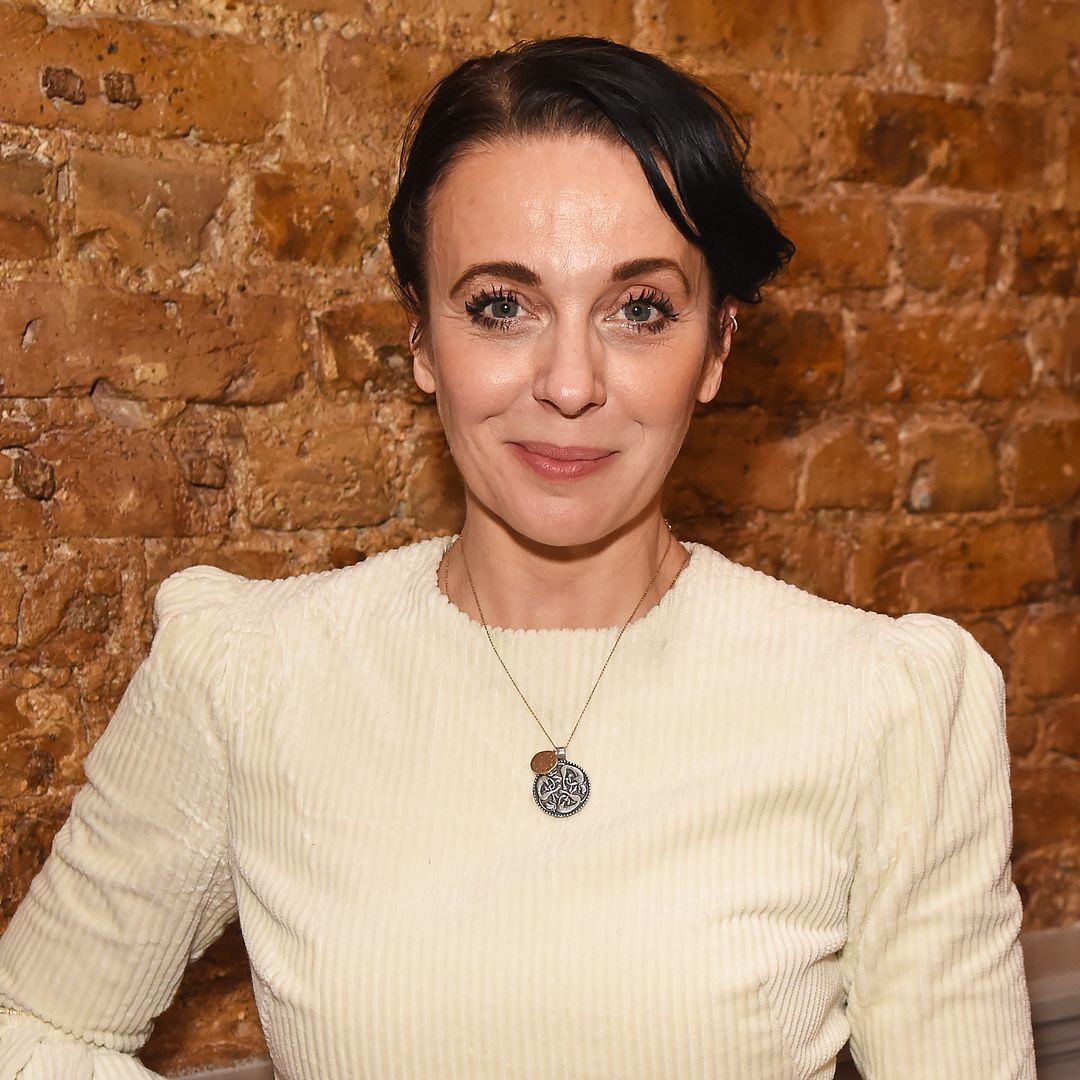It is, you know, a truly important moment when public figures step forward and share their experiences, especially when those experiences touch upon something as personal and often hidden as mental well-being. These conversations, in a way, help to shine a light on topics many people feel a bit shy about discussing. It's almost as if a weight is lifted when someone we recognize, someone in the public eye, talks about the ups and downs of their inner world.
When well-known people, like actors or performers, openly talk about what's going on inside their heads, it does something really powerful. It helps others who might be quietly dealing with their own struggles feel a little less alone. There's this sense of connection that forms, a quiet nod of understanding that says, "You are not the only one feeling this way." It truly helps to build a more compassionate space for everyone.
So, when we hear about someone like Amanda Abbington, it brings the broader discussion of mental health right to the forefront of our minds. It provides, in some respects, a focal point for us to think about how important it is to be kind to ourselves and to each other when it comes to our feelings and our overall sense of calm and peace. Her presence in these conversations helps us remember that looking after our minds is just as vital as looking after our bodies.
- Jason Connery
- Baldwin Brothers
- Delphine Arnault Interview
- Avril Lavigne Age
- Clear Instagram Cache Iphone
Table of Contents
- A Look at Amanda Abbington's Background
- Personal Details and Bio Data
- Why is Talking About Mental Health So Important?
- How Can We Support Others with Their Mental Health?
- What Role Do Public Figures Play in Mental Health Awareness?
- Is There a Stigma Around Amanda Abbington Mental Health Discussions?
- Practical Steps for Supporting Mental Wellbeing
- Finding Help and Resources for Amanda Abbington Mental Health Concerns
- Building a Community Around Mental Health
A Look at Amanda Abbington's Background
Amanda Abbington is, as a matter of fact, a well-regarded figure in the acting world, someone whose performances have touched many viewers. She has, you know, a knack for bringing characters to life on screen and on stage, making them feel very real and relatable. Her work has spanned a good number of years, covering a variety of roles that showcase her considerable skill as a performer. It's almost like she can step into anyone's shoes and truly make you believe in the person she is portraying.
She has been a part of many popular television shows and theater productions, earning quite a bit of recognition for her contributions. Her career, in a way, shows a steady path of dedication to her craft, always striving to deliver performances that resonate with audiences. This kind of public presence means that anything she chooses to speak about, especially something as personal as mental health, carries a certain weight and can reach a lot of people. It's a platform, basically, that allows for important ideas to be shared widely.
Personal Details and Bio Data
For those who might be curious about some basic facts, here is a quick overview of Amanda Abbington's general information. This helps, you know, to set the stage for further discussion, giving a little bit of context about the person we are talking about. It's just a few key details, really, to give a broad picture.
- Brandi Passante Personal Life
- How Much Does Jake From State Farm Make
- Justin Bieber Age When He Sang Baby
- How Did Bob Ross Die
- Nancy Carell
| Full Name | Amanda Jane Abbington |
| Occupation | Actress |
| Birth Date | February 28, 1974 |
| Birthplace | North London, England |
Why is Talking About Mental Health So Important?
Talking about mental health is, quite simply, a truly big deal because it helps to normalize something that affects so many of us. For a long time, these kinds of conversations were kept very quiet, almost like a secret. People felt, you know, a sense of shame or a need to hide what they were going through, which made things even harder. When we start to speak openly, it breaks down those barriers and lets people know it's okay to not be okay.
When we share our experiences, or simply acknowledge that mental well-being is a part of everyone's life, it creates a space for healing and understanding. It means that someone struggling with feelings of sadness or worry doesn't have to carry that burden all by themselves. They might, you know, feel more comfortable reaching out for help, whether that's talking to a friend, a family member, or a professional. This open dialogue is really the first step towards getting better and feeling more supported.
Moreover, discussing mental health helps us to learn from each other. We can share strategies that have worked for us, or just listen with a kind ear. It builds a sense of community, where people feel genuinely cared for and understood. This shared experience, basically, can be a powerful force for positive change, helping us all to feel a bit more connected and less isolated in our individual experiences.
How Can We Support Others with Their Mental Health?
Supporting someone who is facing mental health difficulties can feel, in a way, like a big responsibility, but it often comes down to some very simple, yet powerful, actions. One of the most important things you can do is just to listen without judgment. When someone feels heard and truly understood, it can make a tremendous difference. It's about offering a safe space, you know, where they can express themselves without fear of being dismissed or criticized.
Another helpful step is to show genuine care and concern. Sometimes, just letting someone know you are there for them, no matter what, can provide a great deal of comfort. This might mean checking in regularly, offering practical help with daily tasks if they are struggling, or simply spending time with them. It's not about fixing things, necessarily, but rather about being a steady presence and a source of gentle encouragement.
Also, it is quite important to encourage professional help if you feel someone needs it, but to do so gently and with respect for their choices. You could, for instance, offer to help them find resources or even go with them to an initial appointment if they feel nervous. Remember, your role is to be a supportive friend or family member, not a therapist. Your kindness and patience, basically, can go a very long way in helping someone on their path to feeling better.
What Role Do Public Figures Play in Mental Health Awareness?
Public figures, like actors and performers, hold a rather unique position when it comes to raising awareness about important topics such as mental health. When someone well-known shares their personal story or speaks out about mental well-being, it can reach a huge number of people. This reach, you know, helps to bring the conversation into homes and communities where it might not have been discussed before. It's almost like they open a door for others to walk through.
Their willingness to be open can also help to break down the idea that mental health struggles are something to be ashamed of. When a celebrity or a public personality talks about their own experiences, it shows that these issues can affect anyone, regardless of their success or outward appearance. This kind of honesty, in a way, can be incredibly validating for individuals who might feel isolated by their own difficulties. It helps to normalize the experience, making it feel less like a personal failing and more like a common human challenge.
Moreover, public figures can use their platform to point people towards helpful resources and organizations. They can encourage others to seek professional support, or to talk to trusted friends and family. Their words can inspire action and encourage a more compassionate approach to mental health across society. It's a powerful tool, really, for shifting public opinion and encouraging a greater sense of collective care.
Is There a Stigma Around Amanda Abbington Mental Health Discussions?
The topic of mental health, even today, can still carry a certain amount of stigma, and discussions around figures like Amanda Abbington mental health might, in some respects, highlight this. Stigma basically means a negative perception or a sense of shame attached to something. When it comes to mental well-being, this can mean people are hesitant to admit they are struggling, or they fear being judged if they seek help. It's a very real barrier for many individuals.
Public discussions, however, whether they involve Amanda Abbington or anyone else, play a very important part in chipping away at this stigma. Every time someone speaks openly and honestly about their feelings or their experiences with mental health, it helps to normalize the conversation. It shows that it's not something to hide, and that seeking support is a sign of strength, not weakness. This kind of openness, you know, can slowly change how society views these matters.
It is, after all, through continued and brave conversations that we can create a more accepting and supportive environment for everyone. When we talk about topics like Amanda Abbington mental health, we are not just talking about one person; we are talking about the broader need for empathy and understanding in our communities. This ongoing dialogue is truly essential for building a world where everyone feels comfortable seeking the care they need for their minds.
Practical Steps for Supporting Mental Wellbeing
Taking care of our mental well-being involves a series of practical steps that can be woven into our daily lives, like bits of thread in a cloth. One very important aspect is to prioritize self-care, which can look different for everyone. For some, it might mean making sure to get enough rest each night; for others, it could involve spending time outdoors in nature. It's about finding those small moments that, you know, help you feel refreshed and a little more centered.
Another helpful step is to maintain connections with people who lift you up. Strong social bonds, basically, are a powerful buffer against feelings of loneliness or isolation. This could mean regular chats with friends, spending time with family, or joining groups that share your interests. Human connection, in a way, provides a sense of belonging and support that is vital for our emotional health. It's really about nurturing those relationships that make you feel good.
Also, engaging in activities that bring you joy or a sense of accomplishment can make a big difference. This might be a hobby, a creative pursuit, or even just listening to your favorite music. These activities provide a positive outlet and can help to reduce stress and improve your mood. It's about creating a balance in your life, making sure there's room for things that truly nourish your spirit, helping you feel a bit more whole.
Finding Help and Resources for Amanda Abbington Mental Health Concerns
When someone, whether it's a public figure like Amanda Abbington or anyone else, faces mental health challenges, knowing where to find help is incredibly important. There are, you know, a variety of resources available, and the right path often depends on individual needs. One common and very effective route is to speak with a healthcare professional, such as a doctor or a therapist. They can offer guidance, diagnosis if needed, and suggest appropriate treatments or coping strategies.
Beyond individual therapy, there are also many support groups that can provide a sense of community and shared experience. These groups allow people to connect with others who are going through similar situations, which can be very comforting and validating. It's a place where you can share your feelings and hear from others who truly understand, creating a powerful network of support. This kind of peer connection, in a way, can be incredibly healing.
Additionally, many organizations and charities offer free resources, helplines, and online information that can be a great starting point for anyone seeking support. These resources can provide immediate assistance, offer practical advice, or simply be a listening ear during difficult times. It's important to remember that help is available, and reaching out is a brave and sensible step towards feeling better. No one has to face these challenges completely alone.
Building a Community Around Mental Health
Creating a community that truly supports mental health is, in some respects, about fostering an environment where everyone feels safe to be open about their feelings. It means moving beyond just talking about it and actually putting practices into place that encourage kindness and understanding. This kind of community building starts with each of us, in our daily interactions, by being more aware and more compassionate towards those around us. It's about making sure everyone feels seen and valued.
In such a community, discussions about mental well-being are not just tolerated but actively encouraged. Schools, workplaces, and local groups can play a very important role in this by offering educational programs and creating spaces for open dialogue. When these conversations become a regular part of our lives, it helps to chip away at the old ideas that kept mental health in the shadows. It's almost like building a strong, supportive net for everyone to rely on.
Ultimately, a community that truly cares about mental health is one where empathy is a guiding principle. It's a place where people look out for one another, offer a helping hand when needed, and celebrate every step forward, no matter how small. This collective effort, you know, helps to create a society where everyone has the chance to thrive, both in their minds and in their lives. It's a goal worth working towards, for all of us.
Related Resources:



Detail Author:
- Name : Leopold Haley Sr.
- Username : collier.bailey
- Email : jared68@gmail.com
- Birthdate : 1978-07-17
- Address : 12707 Lesch Avenue Carmellashire, PA 03472
- Phone : +1 (442) 931-6995
- Company : Schaefer, Gutmann and Wintheiser
- Job : Printing Machine Operator
- Bio : Dicta hic voluptas quia nisi. Accusantium reiciendis sed ex earum consequatur ullam. Esse consequatur omnis nesciunt sunt. Et quo nostrum saepe aperiam quia aut sit.
Socials
tiktok:
- url : https://tiktok.com/@zionlubowitz
- username : zionlubowitz
- bio : Est hic ut modi quis illo tempora illo.
- followers : 1650
- following : 1512
instagram:
- url : https://instagram.com/zion.lubowitz
- username : zion.lubowitz
- bio : Autem laudantium et quo. Ut voluptatem beatae velit sapiente.
- followers : 2136
- following : 1817